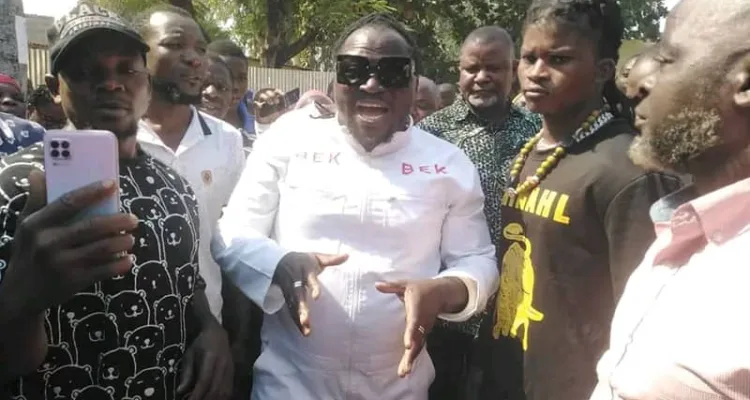
The Malawian government’s efforts to substantiate allegations that activist and self-proclaimed “President of the Poor,” Bon Kalindo, incited violence during recent protests have failed, marking a pivotal moment in the legal proceedings involving the outspoken advocate.
Bon Kalindo, renowned for his activism under the banner of Malawi First and his vocal advocacy for marginalized communities, faced accusations of incitement during protests. These demonstrations were reportedly driven by grievances over governance and socio-economic issues affecting local populations.
During court proceedings, the government struggled to present compelling evidence to support their claims of incitement, highlighting challenges in linking Bon Kalindo’s actions to acts of violence.
Legal experts closely monitored the case, recognizing its potential implications for freedom of expression and assembly in Malawi.
Bon Kalindo’s legal defence team vigorously contested the charges, emphasizing his right to peaceful protest and freedom of speech enshrined in Malawi’s constitution. The court’s decision not to find sufficient grounds for the incitement charges reflects judicial scrutiny over the government’s allegations.
Supporters of Bon Kalindo welcomed the court’s ruling as a victory for civil liberties and democratic rights, applauding the judiciary’s role in upholding fundamental freedoms amidst political tensions.
The outcome of this case is expected to influence future debates on the boundaries of political activism and the protection of citizens’ rights in Malawi. It underscores the importance of legal oversight and due process in safeguarding constitutional principles amid evolving political landscapes.
As Bon Kalindo continues his advocacy work, the case serves as a reminder of the responsibilities and challenges associated with activism in a democratic society.
It prompts reflection on the balance between civic engagement and governmental authority, highlighting the pivotal role of the judiciary in ensuring accountability and preserving democratic values.
Moving forward, the aftermath of this legal battle is likely to shape public discourse on activism, governance, and the rule of law in Malawi, setting precedents for how similar cases are approached and adjudicated in the futu.














